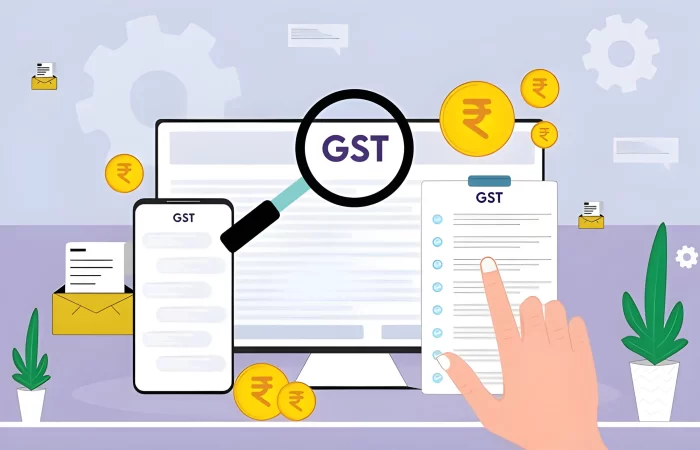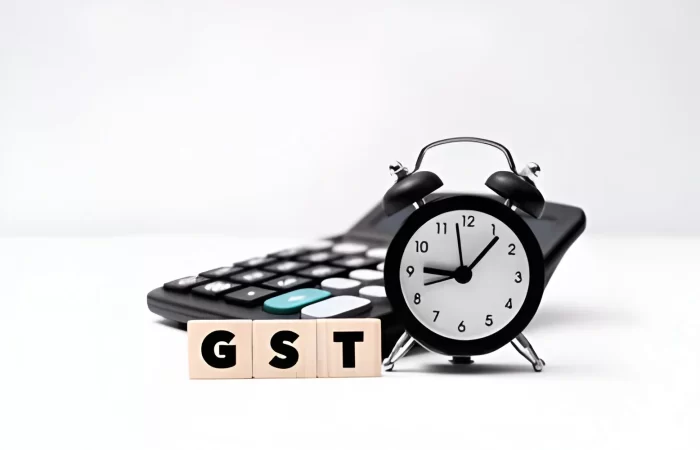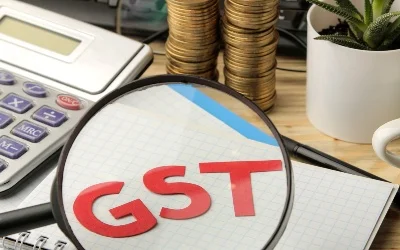
Everything That You Should Know About Input Tax Credit (ITC) Under GST
If you own a business dealing with goods and services, you are most likely aware of GST return filing. The indirect tax levied on your products when they are sold but did you know that there is a way you can reduce this amount? Input Tax Credit enables you to recoup some of the tax that you pay through GST. It also improves your cash flow and ensures compliance with GST regulations.
Understanding Input Tax Credit
Input Tax Credit is a mechanism under the GST return filing system that allows you to reduce the amount you owe on inputs based on how they are utilized. In simple words, it allows you to gain incentives on the taxes paid during procurement of items needed for manufacturing.
How ITC Works Under GST?
Suppose you own a bakery or food business. When you purchase ingredients, you will have to pay an additional GST of say Rs 36 but while selling the baked goods, you will add this amount to the final bill. With Input Tax Credit, you can claim the amount and reduce the GST you will have to pay.
Benefits Of Input Tax Credit for Your Business?
- Better Cash Flow Management: Input Tax Credit can significantly increase your cash flow since a greater amount of cash will be retained within the organization. The excess cash can be diverted towards improving and growing your organization.
- Lower Costs: With an input tax credit, it is possible to procure materials at a lower cost which will boost profitability and give you a competitive edge in the market.
- Optimized Working Capital: By aligning procurement and production decisions based on the availability of Input Tax credit, you can lower your working capital requirements.
Eligibility For Claiming ITC
To be eligible for the Input Tax credit, the following criteria must be met.
- Your business must be registered under GST
- The tax invoice for the purchased goods or services must be furnished
- The goods and services on which ITC is being claimed must be used only for business purposes and not for personal benefit
- ITC can only be claimed once after the delivery of goods
- All the different GST returns should be successfully filed
- The GST amount should be paid to the government
- ITC cannot be claimed on already depreciated goods
Ineligible Items for Claiming ITC
Input tax credits can be claimed on all items if they directly impact the business. Items that do not fall under this category cannot be claimed. For example, membership fees and travel benefits for employees are exempt from ITC. Goods that are stolen, destroyed, written off, or disposed of also cannot be claimed.
Time Limit For Claiming ITC
As per Section 16(4) of CGST Act, to get ITC benefits, the claim should be made before the due date of the annual returns for the present financial year or 30th November of the following financial year. If the claims are not done before these dates, you will lose out on the benefits.
It can be a challenge to track your GST return fillings and if suppliers have uploaded invoices on the GST portal. That is why the government has introduced provisions like GSTR 2B which reflects your total Input Tax Credit based on your suppliers’ fillings and GSTR 3-B which summarizes your GST transactions for a specific tax period. It is important to take advantage of these provisions to get the maximum Input Tax credit.
ITC Reverse Charges And ITC
When GST return filing was first introduced, a major issue was discovered. Significant portion of the Indian economy comes under the organized sector where companies are not registered under GST. This led to issues such as non-payment to the government, sometimes even intentionally as companies might take advantage of this by partnering with unregistered suppliers.
To address this, a reverse charge was introduced wherein the bonus of the tax payment is on the receiver and not the supplier. If you want to claim ITC reverse charges, you will need to obtain a non-GST invoice from the supplier. After receiving the invoice, you will need to pay the required amount to the seller, issue a self-invoice detailing the GST return filing amount, and then deposit the amount to the government.
ITC Special Cases
- ITC On Goods Sent For Job Work – The tax credit on job work is an important aspect of Input tax credit. It allows you to claim tax credits on inputs sent for job work however, to be eligible, proper paperwork, timely completion of the end-product is mandatory. The worker also needs to be registered under GST and the goods need to be returned to the business or supplied to another taxable entity. If the goods are delayed, you will have to pay the tax and the challan will be considered as the invoice.
- ITC On Capital Goods – The ITC on capital goods provision allows businesses to get credit for the taxes paid during the acquisition of capital goods such as machinery, equipment and technology that will be used for production or business operations.
- ITC In Case of Business Transfers, Amalgamations, Or Mergers – Under India’s GST regime, businesses undergoing mergers, acquisitions, or any transfer can claim ITC benefits on unutilized input tax credit lying in their electronic ledger. To avail this benefit, both companies must be GST registered, the transfer must include a liability transfer provision, and the transferor must electronically file Form GST ITC-02 with details of the transaction and a chartered accountant’s certificate. In demergers, the ITC is apportioned based on the value of assets transferred to each new unit.
How To Claim 100% ITC
- Define Processes and Validations – It is important that you identify checkpoints like receipt of invoice and goods. In the case of goods received in large quantities, the receipt of the last lot of goods.
- Maintain Detailed Records – Keep detailed records of all your purchases with tax invoices and receipts. This makes claiming ITC during tax filing smoother.
- Reconcile Your GSTR-2B – The GSTR-2B report contains details of ITC you can potentially claim based on your suppliers’ filings. Regularly reconcile this report with your purchase records to identify any discrepancies.
- Follow Up with Suppliers – If a supplier hasn’t filed their GSTR-1 on time, the ITC details won’t reflect in your GSTR-2B. Follow up with them to ensure they file it to avoid missing out on ITC.
- Claim Based On GSTR-2B – Since provisional ITC claims are no longer allowed, you can only claim ITC reflected in your GSTR-2B. This report acts as the final record for eligible ITC.
- Consider Professional Help – Managing GST can be complex. If you deal with a high volume of purchases, consider partnering with gst return filing consultants to ensure accurate ITC claims.
In conclusion The Input Tax Credit is a vital part of the GST system as it allows you to lower your tax burdens, improve cash flow and streamline financial management. To get the maximum ITC, it is important to maintain accurate documentation, file returns on time and stay abreast of the latest changes in ITC regulations.
If you need assistance with filing your ITC returns, Get in touch with us at Shah and Doshi Chartered accountants. As one of the top GST return filing consultants in Mumbai, we have a team of expert professionals who have extensive knowledge of GST processes and regulations. Using a proactive approach, they ensure your returns are filed accurately on time and in accordance with GST regulations.
FAQ's
Businesses can benefit in several ways from Input Tax Credit. Reduced Tax liability, enhanced competitiveness, improved cash flow and compliance with tax laws are just some of the ways they can benefit from it.
Goods stolen, destroyed, written off, discarded, used as free samples or for personal use are not eligible for ITC since ITC is only applicable on goods used for making taxable supplies.
Yes, input tax credit can be reversed but only under the following circumstances.
- The invoice has not been paid within 180 days from issuance.
- Inputs or capital goods have been used for personal use.
- The credit note has been sent by the seller to the head office.
Input tax credits should be filed before 30th November of the next fiscal year. Tax invoices and debit notes more than a year old will not be applicable for ITC.



